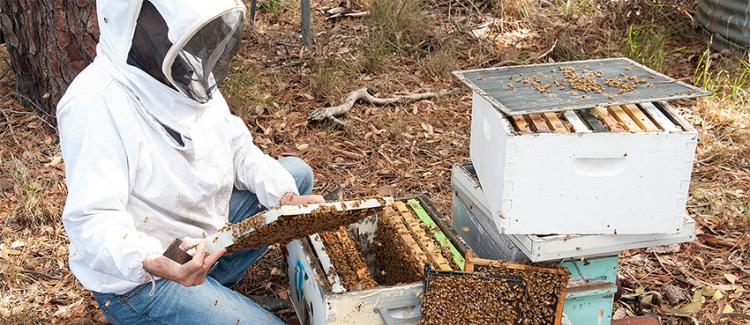Development Challenge
There is no doubt that Jordan’s beekeeping and honey production industry has great potential for growth, as many parts of the kingdom are rich in plants that are great sources of nectar and pollen for bees. However, the industry is still considered in its infancy stage. It requires substantial support to become an income and employment generator and contribute to national development.
To date, the beekeeping industry in Jordan has failed to attract enough support from the public sector and has mainly remained a supplemental income activity for most beekeepers.
According to USAID LENS research, most beekeepers in Jordan have received little or no formal training in beekeeping production. Beekeepers also lack adequate marketing and management skills in many aspects such as commercial beekeeping, marketing of bee products, training material and aids, quality control mechanisms, etc.
USAID LENS Work
Having identified honey production’s great potential in Jordan, the interventions of USAID LENS in this industry will revolve around enhancing the competitiveness of Jordanian honey in local markets, and building the capacity of beekeepers.
The project worked with industry stakeholders to identify factors that limit the growth and development of the industry, and plans to accomplish the following:
- Modernizing hive management, as well as honey harvesting and processing.
- Offering a training program on hive management to help bee-keepers maximize their production.
- Educating (whenever possible) government officials/ stakeholders on the importance of beekeeping as a sustainable practice for income generation.
Main Achievements
- After over 10 years of unavailing efforts, a grant from USAID LENS helped to establish the Jordanian Beekeepers Association in the northern part of Jordan. The formation of an official association will formalize work and will solve many problems including pesticide toxicity to bees, regulating and testing the production of honey, and will put an end to ongoing issues such as honey laundering scams.
- USAID LENS developed a manual in order to introduce and diffuse beekeeping best practices. The project conducted 12 training workshops on best practices in beekeeping to over 600 MSEs. Training workshops were held in myriad districts across Irbid, Zarqa and Greater Amman.
- A government decision came out in late September 2016 to exempt 24 beekeeping production inputs from customs duties.The decision was published in the Official Gazette in its October 2016 issue. LENS held a stakeholders meeting in March 2016 to call for tax/custom exemption on beekeeping production input that involved representatives from Ministry of Agriculture, Ministry of Finance, Jordan Investment Commission and Beekeeping Union. As an outcome of that meeting, a letter was sent to the Prime Ministry and subsequently transmitted to the Ministry of Finance for opinion, which results in this policy decision.




